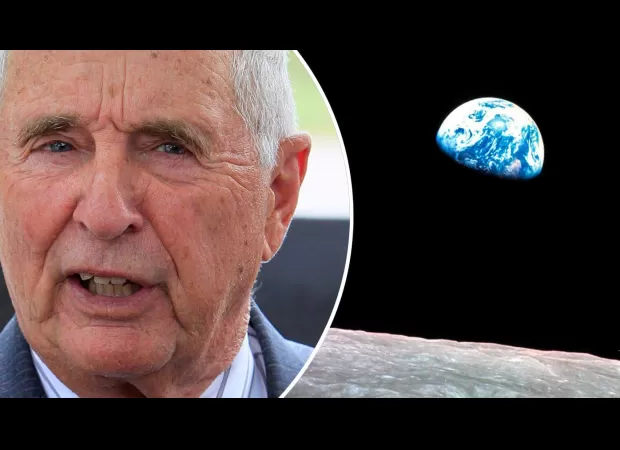Astronaut who captured famous Earthrise picture dies in plane crash in Washington.
Former Apollo 8 astronaut William Anders, famous for the "Earthrise" photo, died at 90 in a plane crash.

William Anders, a brave and accomplished former astronaut, who captured the iconic “Earthrise” photo during the Apollo 8 mission in 1968, sadly passed away at the age of 90 on Friday. His son, retired Air Force Lt. Col. Greg Anders, confirmed the tragic news to The Associated Press, stating that the family is devastated by the loss of their beloved father and that he will be deeply missed.
Throughout his life, William Anders had many remarkable achievements, but he often spoke about how the “Earthrise” photo was his most significant contribution to the space program. Along with ensuring the success of the Apollo 8 command module and service module, he captured the first color image of Earth from space, which had a profound impact on how humans viewed our planet. This photo is credited with sparking the global environmental movement and showing the fragility and isolation of Earth from a new perspective.
NASA Administrator and former Senator Bill Nelson expressed his admiration for Anders, stating that he embodied the spirit of exploration and helped us see ourselves in a new light. He also shared a quote from Anders on social media, where the former astronaut described the moment he took the “Earthrise” photo with awe and wonder.
During the Apollo 8 mission, which was the first human spaceflight to leave low-Earth orbit and travel to the moon and back, Anders took the famous photo during the crew’s fourth orbit of the moon. He quickly switched from black-and-white film to color film, capturing the stunning view of Earth rising above the barren lunar landscape. Anders exclaimed in amazement at the sight, calling it "pretty" and "impressive."
The Apollo 8 mission was a bold and dangerous one, setting the stage for the historic moon landing just seven months later. Arizona Senator and retired NASA astronaut Mark Kelly reflected on Anders' legacy, stating that he forever changed our perspective of our planet and inspired future generations of astronauts and explorers.
According to San Juan County Sheriff Eric Peter, a plane crash was reported on Friday morning, with an older-model plane sinking into the waters near Jones Island. Greg Anders later confirmed that his father, who was piloting the plane alone, did not survive the crash. The National Transportation Safety Board and Federal Aviation Association are currently investigating the incident.
In a 1997 NASA oral history interview, William Anders discussed the risks involved in the Apollo 8 mission and how important it was for national pride and exploration. He shared that there was a one in three chance of not making it back, but he believed it was worth the risk. He also reflected on the fragility of Earth and how seeing it from space changed his perspective.
Anders served as backup crew for Apollo 11 and Gemini XI, but the Apollo 8 mission was the only time he flew to space. He had a long and accomplished career, serving in the Navy and Air Force, working for the Atomic Energy Commission, and even serving as an ambassador to Norway. He and his wife, Valerie, also founded the Heritage Flight Museum, which features many aircraft and artifacts from his time as an astronaut and military pilot.
William Anders will be remembered as a true pioneer and hero who helped humanity see our planet in a new light and pushed the boundaries of exploration. He leaves behind a loving family and a lasting legacy that will continue to inspire future generations.






